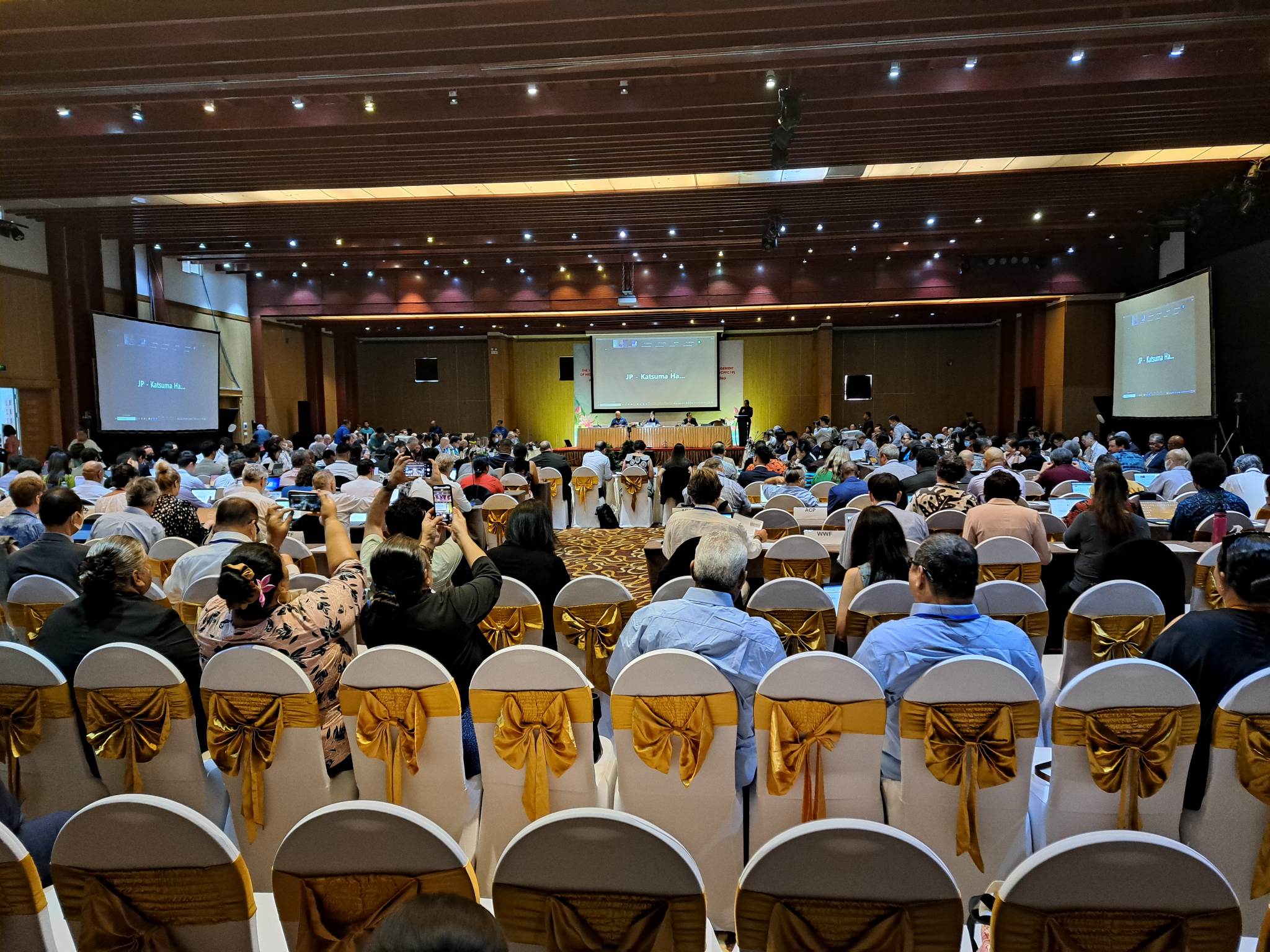By Pita Ligaiula in Da Nang, Vietnam
The Executive director of the Western and Central Pacific Fisheries Commission (WCPFC) Feleti Teo says the Commission was severely challenged to adapt and to adjust to a new working environment dictated by the disruptive impacts of the COVID-19 pandemic on international travels and modes of transacting businesses.
This week’s WCPFC19 meeting is the first physical meeting of the Commission for the last three years since the dawn of the global pandemic.
The last physical meeting was the annual meeting of the Commission in Port Moresby, Papua New Guinea in December 2019.
Teo said as delegates gather in Da Nang and plot the way forward for the Commission, it would serve their purpose well, if they take stock of the lessons learnt of the last three years.
“So, what an excitement and thrill to reconnect in person with most delegates and to meet up in person for the first time with colleagues that we only viewed on computer screens and spoken to virtually.
“As your Executive Director, I was full of admiration and marveled at the high level of resilience, adaptability and perseverance of the Commission membership.
“Despite the Commission’s inability to meet physically and the constraints and confinements of virtual meetings, the Commission was able to sustain over the period of three years its routine operations and functionalities as mandated by its founding document, the WCPF Convention,” he said.

Teo said although there were slippages in the achievement of agreed timelines for some of the more technically challenged issues like those associated with the implementation of the Harvest Strategy work plan, the Commission was able to avoid avoidable gaps in its conservation and management regime.
“The Commission continued to undertake its scheduled stock assessments; the Commission was able to sustain and continued the operations of its compliance and monitoring control and surveillance tools and programmes; the Commission was able to sustain the operations of the WCPFC compliance and monitoring scheme and even undertook improvements to it; the Commission was able to negotiate virtually a revised tropical tuna measure in 2021; and the Commission was also able to convene on a trial basis the first virtual science-management dialogue this year to name a few.
“The achievements I just cited, despite the most challenging operational circumstances encountered in the short history of the Commission attest to the unique character of the WCPFC, that I have come to acknowledge and appreciate over my tenure as Executive Director – and that is the Commission’s ability to rise to the occasion and do right for the sustainability of the health of the fish stocks under the purview of the Commission.
“As the Commission seek to address at its first physical meeting after three years this week key issues of harvest strategy development and implementation including a Management Procedure for skipjack; ongoing reforms to improve the efficiency and efficacy of the compliance and monitoring scheme; preparations for negotiations of a new or revised tropical tuna measure in 2023; and progressing the important work of the various intersessional working groups on issues like electronic reporting and monitoring, crew labour standards, and transhipment review to name a few,” said Teo.
Teo said despite the continuing disruptions of the COVID-19 pandemic, the Commission had a reasonably successful year.
“It was able to convene successfully the virtual meetings of all its subsidiary bodies and those of a number of intersessional working groups.
“In addition, the Commission also convened additional meeting of a special session to consider the intersessional decisions to suspend certain observer placement requirements and the first science-management dialogue. The outcomes of all these meetings would be considered by the Commission at this meeting and would be the basis of the Commission outcomes and decisions of this week,” said Teo.
SOURCE: PACNEWS














